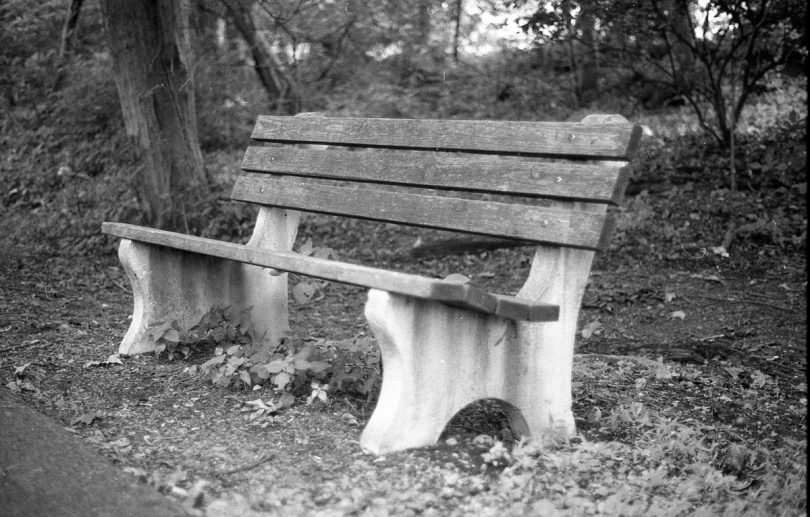Each week, Moravians across the U.S., Canada and the Caribbean share a common message through their Sunday bulletins. This month, we share insights written for the Twenty-first Sunday after Pentecost, based on Mark 10:35-45. Thanks to writers past and present for their contributions to the Moravian bulletin series.
Mark 10:35-45
New Revised Standard Version
James and John, the sons of Zebedee, came forward to him and said to him, “Teacher, we want you to do for us whatever we ask of you.” And he said to them, “What is it you want me to do for you?” And they said to him, “Grant us to sit, one at your right hand and one at your left, in your glory.” But Jesus said to them, “You do not know what you are asking. Are you able to drink the cup that I drink, or be baptized with the baptism that I am baptized with?” They replied, “We are able.” Then Jesus said to them, “The cup that I drink you will drink; and with the baptism with which I am baptized, you will be baptized; but to sit at my right hand or at my left is not mine to grant, but it is for those for whom it has been prepared.”
When the ten heard this, they began to be angry with James and John. So Jesus called them and said to them, “You know that among the Gentiles those whom they recognize as their rulers lord it over them, and their great ones are tyrants over them. But it is not so among you; but whoever wishes to become great among you must be your servant, and whoever wishes to be first among you must be slave of all. For the Son of Man came not to be served but to serve, and to give his life a ransom for many.”
Business-as-Usual
Jennika Borger, chaplain, Moravian College, Bethlehem, Pennsylvania • Oct. 17, 2021
When I was a little girl, I would pretend that I was the queen and my little sister was my servant. This game worked well, for me, as I wore my plastic bejeweled crown and bossed my sister around. Then one day she realized that she did not have to listen to me anymore. We became bitter enemies for a little while, until I began to accept her as my equal.
Business-as-usual in much of our world is an established hierarchy, where some are given (or take) power and others submit to, fear, or resent that power. Business-as-usual immediately creates inequality, and this inequality divides people into an “us versus them” reality.
James and John understand business-as-usual. They know that Jesus is a powerful leader and can spark a revolution in Rome. They want to be right by his side, sharing in the power and the glory. What they do not understand is that Jesus has been teaching and living that business-as-usual is not divine business. He shows us, through his life and more explicitly through his death, that worldly power is dominion over while spiritual power is service with.
Following Jesus is not business-as-usual. Jesus came “not to be served but to serve.” In following him we are called to let go of our desire to control and have power over others, and instead to serve. How does Jesus’ understanding of power change how we structure our governments, our communities, our churches, and our households?
Being the queen worked in my favor for a moment. A relationship based on the power of love and service created a meaningful relationship for a lifetime.
Upside-down Jesus
Carol Vogler, pastor, Rio Terrace Moravian Church, Edmonton, Alberta • Oct. 18, 2009
Young Erik with Down syndrome has recently embraced the concept of “upside-down.” Holding his stuffed teddy by one foot, he exclaims, “Look . . . bear . . . up-tide down . . . funny!” In fact, anything “up-tide down” prompts Erik’s infectious laughter, as “up-tide down” just doesn’t “fit” with the way he’s trying to understand the world.
So it was with the disciples. So it is with us, as we engage the “upside-down” reality of Jesus’ words, actions and being. What we see in Jesus, and hear in the words attributed to him, defies common understandings of power: “For the Son of Man came not to be served but to serve.”
In Jesus’ time, social, political and religious power was understood and structured hierarchically: from top down. This understanding and structure persists today. But time and again, in word and action, Jesus turns this understanding of power upside down. Washing the feet of his followers; touching those considered unclean; refusing to side with religious intolerance; speaking words of forgiveness, reconciliation and love—these characterize the way of Jesus and his call to newness of life.
Unfortunately for many who can’t grasp the concept, and for those of us who want to justify our vocation, our faith, our purchases, or our prejudices, the upside-down value system of Jesus/God is not at all amusing. Seeing Christ in others, serving others and loving others as we have been loved is often too challenging to consider.
But when I look at Erik, I am grateful to the God who welcomes, embraces, and includes Erik, and those others whom society has under-valued. And I smile, imagining how different, delightful, equitable this world would be, if structured according to the standards and call of love: the upside-down way of Jesus.
Who Wishes to Be Great
Martha Griffis, elder, Central Moravian Church, Bethlehem, Pennsylvania • Oct. 18, 2015
James and John approach Jesus and ask if they may be seated on Jesus’ right and left hand in his glory. “You don’t know what you are asking,” Jesus replies and then asks the important question: “Are you able to drink the cup that I drink, or be baptized with the baptism that I am baptized with?” Jesus assures them that they will in fact drink of his cup and be baptized with his baptism. He continues by pointing out that, unlike the case in worldly endeavors, to be great among their group would be to be a servant to them. Jesus wants them and us to serve in our communities.
We would ask ourselves these same questions frequently. In the service for baptism, the baptized in the congregation are asked: “How were you baptized?” The response is: “Into his death.”
It seems to be human nature to wish to be recognized; to have our fifteen minutes of fame; to be seated above the salt (closer to the host) at a state dinner. This is not what Jesus is about. He makes it clear to his disciples that he came to serve and to give his life a ransom for many. If we are to share in his baptism and in his cup, we must give ourselves over to God’s service.
Where is the source of recognition of this service? From God! God knows who we are and what we are about. God gives us commendation and affirmation when we need it. God understands what we need. To accept the baptism and cup of Jesus may mean something different to each believer. It could mean forgoing new clothes to give the money to charity. It could mean eating simpler meals at home and giving the extra money to charity. It could mean walking the streets to help those you find there. God and the Holy Spirit can be trusted to help each one find his or her cross, their way to share the cup of Jesus.
Be a Miracle
John Wallace, Pastor, Waconia Moravian Church, Waconia, Minn. • Oct. 22, 2006
We will do just about anything to keep one step ahead of our neighbor. We will scratch, crawl, whine, connive, weasel and maneuver our way to the top. We do not need to go to some remote jungle island to see this phenomenon unfold. In school, the church, the workplace and politics, people schmooze their way into a promotion, sweet talk their way out of trouble, or flirt their way to the top, at the expense of those around them.
James and John in today’s Gospel are trying to scheme their way into choice seats in heaven. Jesus uses the moment to teach us what true greatness is. For Jesus, the social values of rank, what’s parked in the driveway or the clothes on your back are of little consequence. Jesus came to serve and not be served. Jesus takes what we conceive to be the most important values and flips them upside down.
Jesus reminds us that in the ordinary, everyday experiences of life we can encounter the extraordinary grace of God. Want to see a miracle? Be the miracle. Volunteer your time, talent, and treasure to serve at a local food shelf, teach a child to read, consistently visit a person in hospice care. Be an advocate for affordable housing or attention to global warming, serve on the local school board, lead a Bible study at church, deliver Meals on Wheels.
Jesus did not come to be served to serve, and to give his live a ransom for many. In serving we will experience the Almighty.







